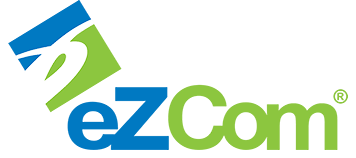Chargebacks are a major headache for any business. They can quickly eat into profits, strain retailer relationships, and create unnecessary stress. For businesses using EDI (Electronic Data Interchange), chargebacks often arise from non-compliance with a trading partner’s specific requirements. Avoiding these costly fees is a key part of making EDI work for your business.
This article explores the most common types of EDI chargebacks and, more importantly, provides strategies to prevent them. By understanding the common pitfalls, you can streamline your operations and safeguard your bottom line.
What Are the Most Frequent EDI Chargebacks?
EDI chargebacks are penalties issued by a retailer to a supplier for failing to follow specific EDI guidelines. These guidelines are a set of rules that dictate everything from how data is formatted to when and how a shipment is delivered. Even a small error can result in a significant fee.
The most common chargebacks typically fall into a few key categories:
Shipping and Labeling Errors
These are some of the most frequent chargebacks because they involve physical goods and documents that must be perfectly aligned. Retailers require a specific format for shipping labels, carton labels (like GS1-128 labels), and packing slips. An error here can stop the entire receiving process at the warehouse, leading to a chargeback.
- Late/Early Shipments: Retailers have strict delivery windows. A shipment that arrives too early can overwhelm their receiving docks, while a late shipment can cause stock shortages. Both result in fines.
- Incorrect Barcodes/Labels: A scannable GS1-128 barcode is essential for fast processing. If a barcode is missing, unreadable, or contains incorrect information (like an inaccurate quantity), the retailer has to manually process the shipment, and you get charged a fee.
- Packing and Carton Errors: Retailers may require items to be packed in a specific way, or for cartons to be a certain size or weight. If you don’t adhere to these rules, you may be penalized.
Documentation Inaccuracies
This category is all about the data you send to your trading partner. If the electronic documents you send don’t match the physical shipment, you’ll likely receive a chargeback.
- Advance Ship Notice (ASN) Mismatch: The ASN (EDI 856) is arguably the most critical document. It tells the retailer what is being shipped and how it is packed. If the information on your ASN doesn’t perfectly match the physical contents of the boxes, you will get hit with a chargeback. For example, if you send an ASN for 100 units but only ship 90, the retailer’s system flags this as a discrepancy.
- Incorrect Invoicing: Your invoice (EDI 810) must match the purchase order (EDI 850) and the ASN exactly. Any difference in pricing, quantity, or line items will lead to a chargeback and delay your payment.
How Can You Avoid Costly EDI Chargebacks?
The best way to prevent chargebacks is to ensure your entire EDI workflow is accurate, automated, and compliant. This is where a reliable EDI provider like eZCom Software is invaluable.
1. Automate Your Workflow
Manual data entry is the primary cause of errors. By automating your EDI process, you eliminate the risk of human mistakes. eZCom’s software, Lingo, can automate repetitive tasks, such as generating invoices and ASNs directly from the source data. This ensures that the data in all your documents is consistent and accurate. To learn more about how automation can benefit your business, check out our article on how eZCom helps you automate.
2. Implement a Robust Validation System
A good EDI solution should have built-in validation checks. This means the software flags potential errors before a document is sent to your trading partner. Our software performs these checks to ensure compliance with a retailer’s unique requirements, helping you catch discrepancies before they become a chargeback.
3. Ensure Seamless Integrations
Your EDI system shouldn’t be an isolated island. It needs to seamlessly integrate with the other systems you use, such as your ERP, WMS, or accounting software. This creates a single source of truth for all your order data, minimizing the chance of information getting mixed up between systems. Read more about the benefits of a connected system in our article onEDI Integrations.
4. Stay Up-to-Date with Retailer Requirements
Retailer requirements are not static; they change. Your EDI provider must stay on top of these updates. eZCom’s dedicated team keeps our software current with thousands of retailers’ mapping rules, so you don’t have to. This proactive approach helps you maintain compliance and avoid unexpected fees. For more insight into what an EDI partner should provide, read our guide onkey players for a successful EDI provider choice.
FAQ
What is an EDI chargeback?
An EDI chargeback is a fee a retailer imposes on a supplier for not complying with their specific EDI and shipping requirements. These fees are deducted directly from the supplier’s payment.
How do I dispute a chargeback?
While it is sometimes possible to dispute a chargeback, the process is often complex and time-consuming. It typically requires providing extensive documentation to prove the shipment was compliant. It’s almost always more efficient to focus on preventing chargebacks in the first place.
What is the difference between an ASN and a purchase order?
A purchase order (EDI 850) is a document from the retailer to the supplier, detailing the items they want to buy. An ASN (EDI 856) is a document from the supplier to the retailer, detailing exactly what is being shipped and how it is packed. The ASN must be a perfect reflection of the physical shipment.
Can EDI software really eliminate all chargebacks?
No software can guarantee the elimination of all chargebacks, as some human errors are always possible. However, a robust EDI solution like eZCom’s Lingo can significantly reduce your chargeback rate by automating processes, validating data, and ensuring compliance with retailer requirements.
Solutions
Lingo Platform
Contact Sales
Contact Support
201-731-1800, Option 2
[email protected]
Monday – Friday
8:30 AM – 8:00 PM Eastern Time


